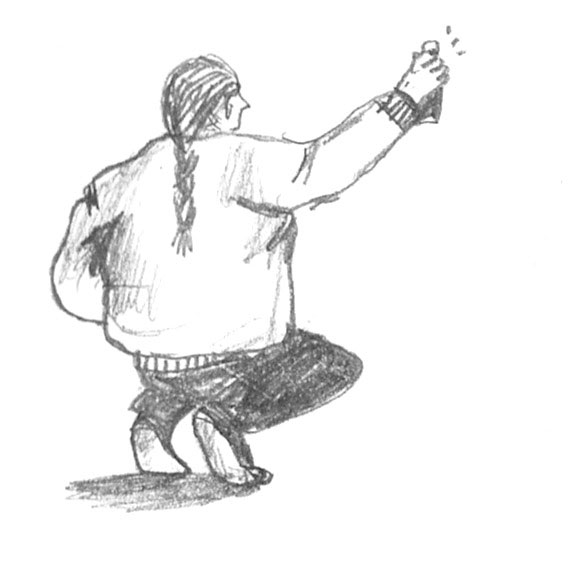
Julian Assange
631 weeks of deprivation of liberty for telling the truth
631 weeks of deprivation of liberty for telling the truth
Advertising is a nuisance to us all. It invades every moment of our lives in various forms. Among these forms, some are more unbearable than others. Let’s try to classify subjectively (but based on a lot of testimonies) the gradient of nuisance of the various ways in which advertising tries to convince us that we will be very unhappy if we don’t acquire this or that object, in the increasing order of disturbance.
Most periodicals are full of beautiful photos and words that are meant to seduce us to consume this or that product. It’s sometimes pretty, sometimes a little ridiculous, but the page is quickly turned and there’s no need to pay attention to tempting images. However, in a recent debate between Béatrice Delvaux and Alexandre Penasse, the editor-in-chief of Le Soir acknowledged that when a large advertiser threatened to stop collaborating with the paper, it threatened the economic balance of the daily. This is why Kairos (and some other media) refuse to advertise in their pages, because they are concerned about their independence from the moneyed powers.
Our mailboxes are theoretically intended to house the mail intended for us. The advertising squats on them and overwhelms us with kilos of paper that, as good ecologists, we put in the selective trash. Fortunately, » No thanks to advertising » stickers are available and — more or less — respected by broadcasters.
According to serious studies, when we walk in the streets of our cities, on an ordinary day, our eyes catch between 2,000 and 3,000 ads. When it’s a business sign, it’s useful and acceptable, but « lollipops » and other signs, sometimes illuminated, are annoying impediments to traffic (pedestrian, obviously). Fortunately, some cities have banned large signs (20m ² to 40m ²), real consumer crime-pusher …
Television programs are rarely interesting and are increasingly interrupted by commercial breaks. Even if it is an opportunity to satisfy minor obligations, their repetition is more than irritating. Some channels partially resist this invasion but often these ads are such a financial contribution that they influence the content of the programs (which, according to the director of TF1, are only a means to provide « available human brain time » to advertisers).
More and more of our contemporaries do not watch TV anymore but look for news and entertainment on the Internet. Here again, no refuge: the advertising inserts, on the left, on the right, before, after, during the images… pursue us. Even worse, algorithms spy on us and impose ads that are supposed to interest us. Who, after trying to book a hotel in some place, has not been bombarded with offers of accommodation targeted at that area?
Finally, the top of the harassment, the phone call that is not the one you are waiting for but from a phone company, a wine merchant or any other mercantile that comes to disturb you even in your nap. You feel like insulting the person on the other end of the line, but you remember that he is a poor employee who, often from a distant French-speaking country in the south of the planet, is trying to survive in a call-center that underpays him. Personally, I answer » Yes … » with a falsely interested air and abandon the cone. I don’t know how long the operator talks in a vacuum, but it’s always a cost of useless communication for his boss. We defend ourselves as we can against these damned ads that parasitize our daily life.
Alain Adriaens
